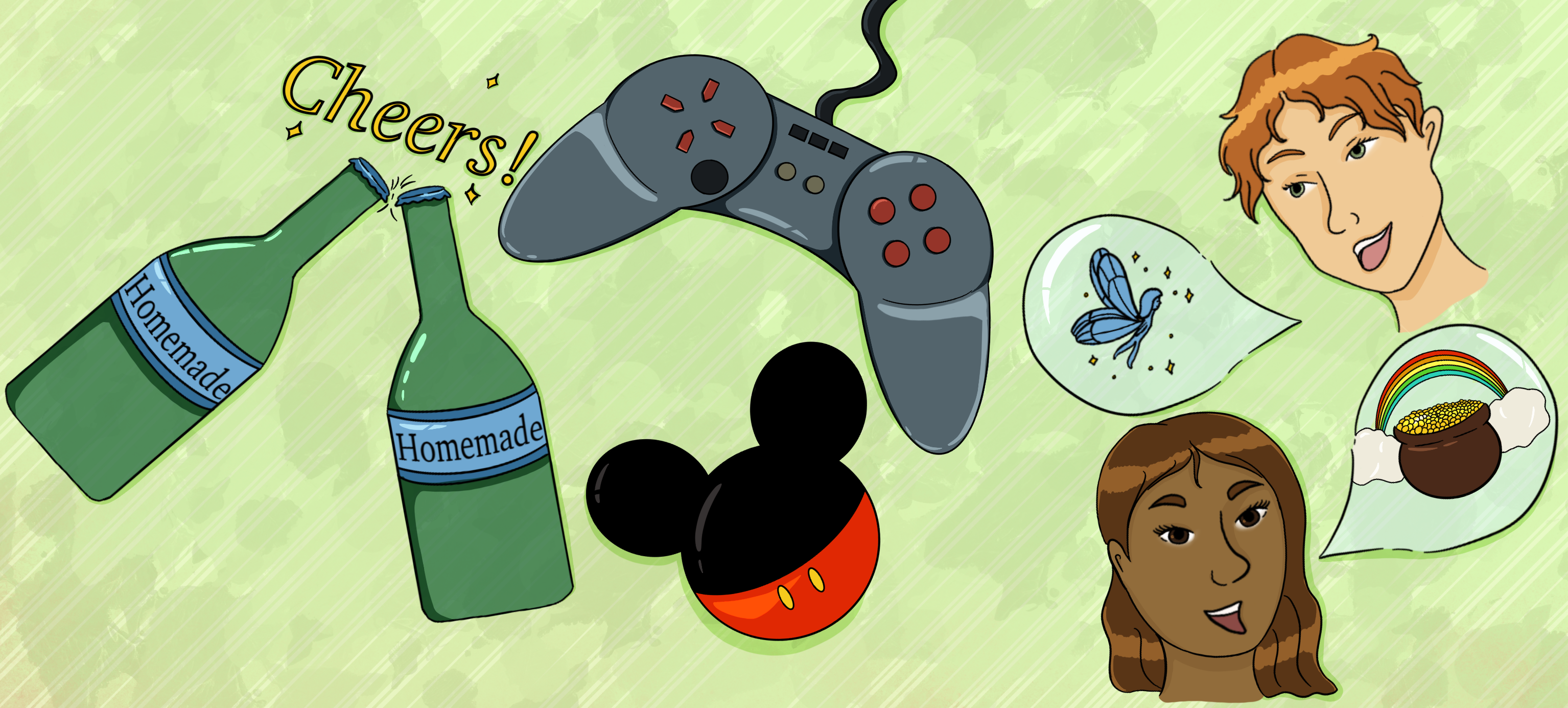“In 2020, knowledge about technology is not something that should be specific to those studying it, but should be an area we all strive to be competent in.”
“Ireland’s ancient brewing tradition could also be a way to encourage participation in Irish culture, and one that is not yet covered by an existing Trinity society.”
“‘Giving people who don’t want to drink a place to socialise without those pressures and voices to those with mental health issues while raising awareness would enrich the lives of students long after they leave,’ says Connolly.”
With 120 societies and 50 sports clubs, Trinity’s society life is clearly thriving. From Astrology to Zoology, there’s something for everyone. But such variety does not mean a lack of room for improvement, especially when comparing the list of societies that the college has on offer with those available at other Irish universities. While it is important to understand that different institutions will have different needs based on their location, courses available, and student body, seeing how our college’s society life measures up to others can highlight areas where the list is lacking.
One area of interest that Trinity societies are lacking in is technology. According to Trinity’s online list of societies, only three deal with technology, Digital Arts Society (DUDJ), Entrepreneurial (TES), and Netsoc. Other societies that deal with technology, such as the Engineering Society, are academic societies mostly populated by students studying that specific subject. In 2020, knowledge about technology is not something that should be specific to those studying it, but should be an area we all strive to be competent in. Furthermore, allowing science students the opportunity to mix with those outside their course is also a benefit. “I’d definitely say it helps to have informed non-tech people in that area, since techies can be deep into that whole world and not see potential drawbacks to technology”, says one engineering postgraduate who wishes to remain nameless. They also put forward the idea that interdisciplinary discussion facilitated by societies focused on technology would encourage consideration of whether different technological advancements are needed or indeed wanted by laypeople. National University of Ireland, Galway’s (NUIG) Drone Society is a perfect example of an area of technology that requires interdisciplinary knowledge. Ideally, governments wanting to use them would be advised by as many scientists as they were philosophers. Maynooth University’s (MU) Women in Stem society and NUIG’s New IEEE Student Branch which connect science students from multiple fields across the globe, could also be of benefit to science students at Trinity.
A society devoted to game development is also missing from Trinity’s roster, while such societies are already available at Dublin City University (DCU), University of Limerick (UL), and Dublin Institute of Technology (DIT). According to Sam Hayes, fourth year TSM English and Philosophy student, former Games Editor for TN2 and former General Officer for DU Gamers, the Irish game creation scene is small, but growing. “The interest is there,” says Hayes. He previously tried to set up such a society, but only stopped gaining signatures when outside obligations prevented him from continuing. “The great thing about making games is that unlike theatre or live action film it can happen completely remotely.” Bringing together computer coding, as well as artistic mediums such as music and design, game development is a space for students of all disciplines to come together and learn from each other.
Another area that could be expanded upon at Trinity are societies dedicated to Irish culture. While the Traditional Irish Music Society and Cumann Gaelach do important work fostering appreciation of Irish culture on campus, these are just two aspects of Irish heritage. Societies dedicated to the Irish tradition of storytelling are largely absent from Dublin universities. Ireland’s ancient brewing tradition could also be a way to encourage participation in Irish culture, and one that is not yet covered by an existing Trinity society. Sean Donnelly, fourth year Biochemistry student and amateur brewer, says that he learned the skill through the internet with inexpensive materials, and that socially distanced lessons would be easy for a society to provide.
The importance of the spaces created by MU’s Mental Health society and DCU’s Sober society were pointed to by fourth year neuroscience student Ciara Connolly. “Giving people who don’t want to drink a place to socialise without those pressures and voices to those with mental health issues while raising awareness would enrich the lives of students long after they leave,” says Connolly. Furthermore, as these societies do not focus on specific activities, they could easily adapt to revolve around online and socially distanced interaction.
Many Irish universities also have societies dedicated to brands. UCD’s Harry Potter Society, NUIG’s Timelord Society, and DCU’s Disney Society are unusual in that they are based around products rather than hobbies. While Trinity does not currently have any societies dedicated to brands, this could prove a difficult area to cover. Uncritical appreciation of art created by businesses, especially ones with a history such as Disney, could translate to uncritical appreciation of those businesses themselves.
Of course, any new societies will have to centre around activities and interests that are able to be appreciated while social distancing. There’s no reason to start a society that might not be functional for the next few years. But it is clear that there are still several societies that could begin running while adhering to governmental guidelines. Trinity’s current list of societies, while extensive, is incomplete. But that will always be the case, as new areas of interest become popular among the ever-changing student body and new activities and areas of study are developed. Keeping up to date would be impossible, but trying is essential for a healthy college culture.






